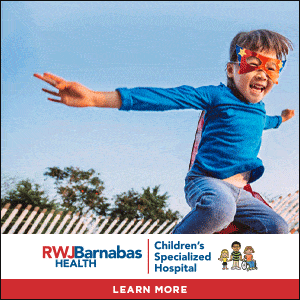As COVID restrictions have eased up this summer, the excitement of feeling normal again heightens with each hug. But for kids, getting back in the social groove and going back to school after a year of virtual everything can be a time filled with anxiety. That’s why Monmouth Medical Center, an RWJBarnabas Health facility in Long Branch, NJ, hosted a recent virtual panel discussion about the impact social isolation has had on children’s mental health. The panel, which included experts in pediatric mental health and infectious diseases, raised awareness on children’s emotional well-being during this difficult time and offered ways to help kids ease their way back. If you think your child may be feeling unsure or anxious about everything, read on for tips on what you can do to make re-entry less scary.
Featured Photo Credit: Istock/kevajefimija
How The Pandemic Has Affected Our Kids
While the way we’ve lived with COVID has changed from last summer, so have our anxieties. We can all agree “being apart from friends is not normal for kids. It’s a typical part of their experience. When kids have a disruption, as we’ve seen in the pandemic this year, it dysregulates them (meaning when a child experiences difficulty with registering emotions, responding to those emotions in ways that are appropriate to the context and regulating the intensity of those emotional responses in social situations),” says Charles D. Katz, Ph.D. Clinical Psychologist, Monmouth Medical Center. “When isolation was so prevalent, kids had nothing to look forward to. This resulted in decreased motivation, negative moods, and possibly even acting out. The isolation also affected the school experience, especially in the absence of face-to-face support from a teacher and having support limited to on-screen help.”
Now, we’ve moved in the direction of how we’re going to manage the risk rather than avoid it. For kids, it means hanging out with friends again and getting back to in-person school and playdates rather than virtual. And re-entering those social situations can stir up different anxious feelings, like having conversations, keeping friendships, and being a part of a group, creating a new type of anxiety, according to Dr. Katz. “Younger kids especially are less capable of articulating those fears, but parents can use this as an opportunity to help them work through it,” he says.
How You Can Help Ease Their Fears
If you can pinpoint the anxiety, you can better understand how to guide your child to feel more confident in a social situation. Firstly, kids may fear catching the virus, especially as Delta is causing rising infection rates, and they may feel anxiety over whether it is safe to re-engage socially and in activities. “Parents should tell kids the risk is less in our area, but we will still be careful, like wearing masks when indoors and around groups. Reassure them it will be ok,” says Dr. Katz.
As for social anxiety, you can start by asking questions like, what do you think it will be like among your friends again? If it’s a new experience, such as starting a new school, ask them how they think it will be, how they feel about it, and if they have any ideas on what to do to meet new kids. “You might say, even though this feels daunting now, it doesn’t mean you can’t do it. Often kids can manage the situation if it’s broken down in specific steps,” says Dr. Katz.
One way to do that is to help kids anticipate what situations might come up and think about possible ways they would handle those situations, says Dr. Katz. “If you make smaller steps and practice communication in meeting new kids and establishing a relationship, you can help them understand how to do it, and they won’t be as stressed,” he adds. “But getting out there helps too—the more exposure to the situation helps your child try out steps to make the situations more manageable.”
Making a Fresh Start
Most kids will be happy to be heading back to school and in-person classes where they are naturally with other kids. But while the Delta variant is making numbers creep up, parents should remind kids COVID is not over. With kids back in masks at school, it could cause anxieties about restrictions and being isolated again. Dr. Katz believes it’s crucial parents keep a dialogue with their kids so you can get their perspective and understand any anxiety they may be feeling. “Kids are gregarious and seek one another out by nature. This fall, they will be excited to be back in school because they’ve missed being around peers, and it will be a relief not to be isolated anymore,” he says. With more personal interactions, Dr. Katz is hopeful that the social anxiety will decrease, but rest assured, there’s one thing we do know—making up for lost time will most certainly be more fun.
This post is sponsored by RWJBarnabas Health to help make every #NJMOM and her family their healthiest.










